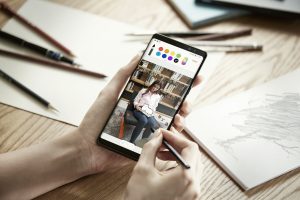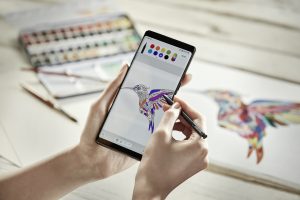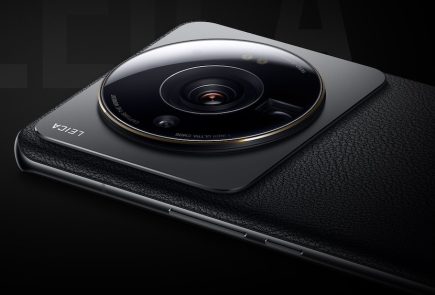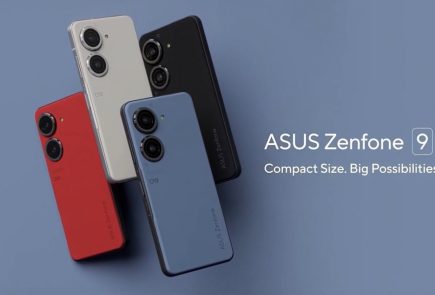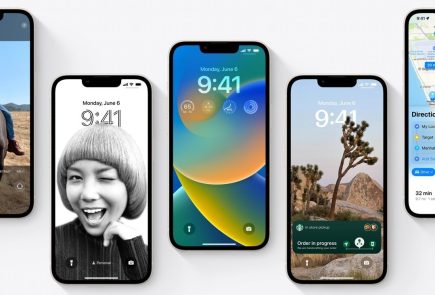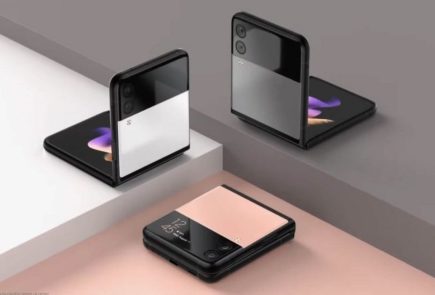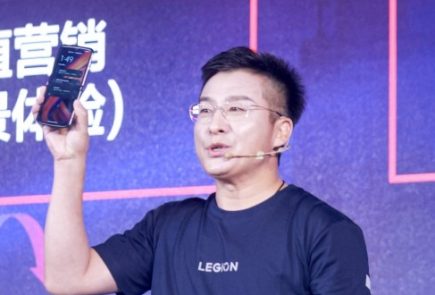Samsung Galaxy Note 8 VS Galaxy Note 7 What Has Changed
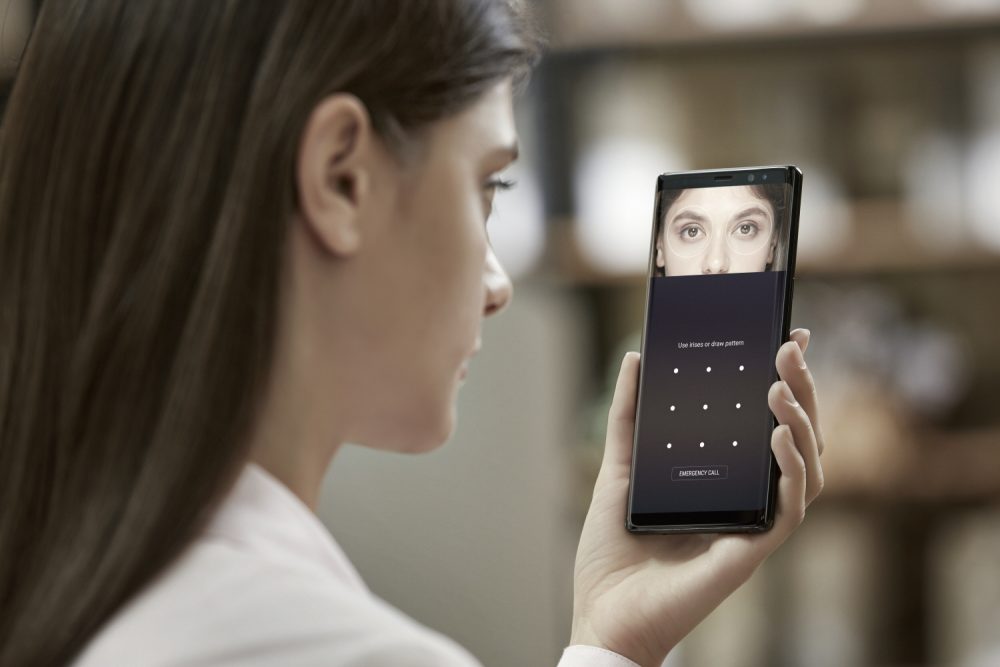
After today’s much-anticipated launch of the Samsung’s new Galaxy Note 8, the company hopes to rebuild consumer confidence and reinvigorate the Note series. Until last year, the Galaxy Note series was amongst the top flagship devices but, the recall of the Galaxy Note 7 due to battery issues had a significant impact on sales and consumer perception. So, from the Galaxy Note 7 to the Galaxy Note 8, what has changed?
The new standout feature – Dual-lens Camera
Unlike its predecessor, the Samsung Galaxy Note 8 is equipped with a horizontally placed two 12-megapixel cameras at the back with a fingerprint scanner right next to it. Many criticized the odd placement of the fingerprint sensor at the back when the Galaxy S8 was launched, and nothing has changed on this front in the Galaxy Note 8.
The 12MP primary camera has a wide-angle lens with an f/1.7 aperture whereas the secondary 12MP camera has a telephoto lens with an f/2.4 aperture. The dual-camera setup is capable of 2X lossless zoom and other features such as Bokeh effect and selective focus for background blurring. The rear camera setup records video in 4K at 30 FPS and features phase detection autofocus, dual optical image stabilization (an industry first, claimed by Samsung) and an LED flash. On the front is an 8MP camera with an f/1.7 aperture which captures 4K videos at 30 FPS whereas, the Galaxy Note 7 had a 5MP front camera with 1920×1080 full HD video recording at 30fps.
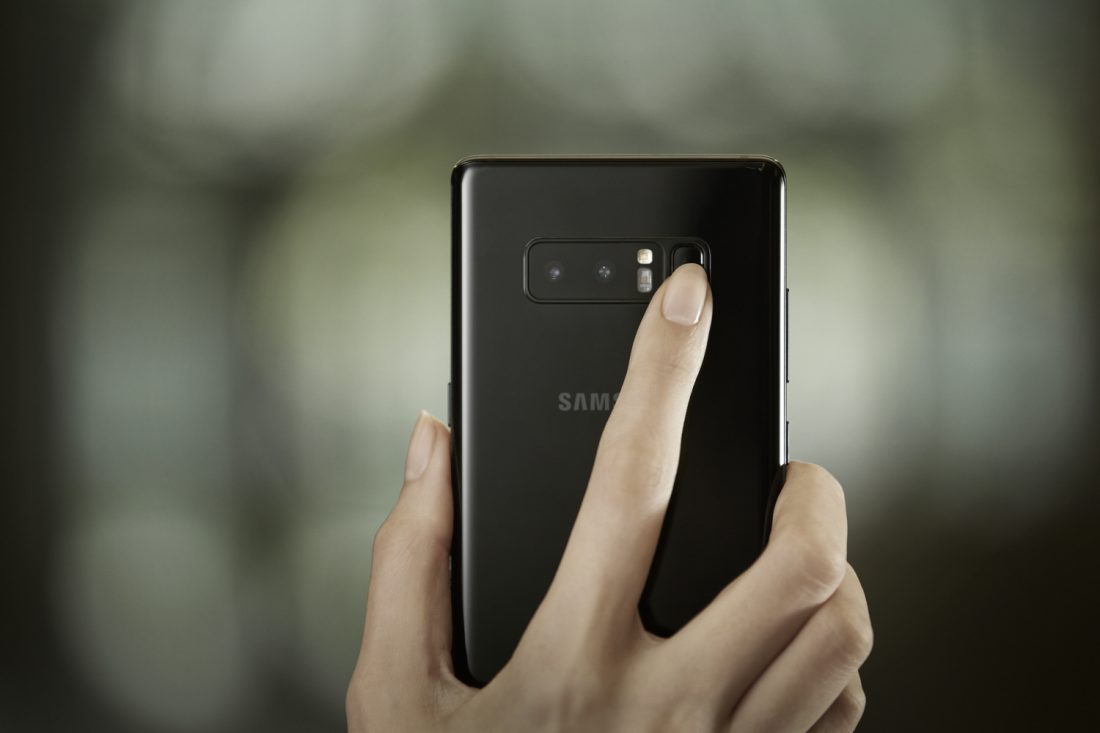
Another widely anticipated feature is the new and improved S-Pen.
Similar to the Note 7 stylus, the new S Pen is water resistant and has more levels of pressure sensitivity. The latest S-Pen features include capability of taking notes up to 100 pages in the Screen Off Memo mode, a live messages which are saved as GIFs and the user can also hand-write a message or picture with the S Pen. Also, the translate feature, introduced on the Note 7, is making a come back in this year’s Note 8. To translate a sentence, a user has to simply highlight the text and the S Pen will instantly translate the sentence into 71 languages.
On the design front, both the Galaxy Note 8 and the Note 7 feature Corning Gorilla Glass 5 panels on the front and the back. Samsung is offering an almost all-screen front with a metal and glass body design along with a built-in stylus. The smartphone sports a 6.3 inch 2960 x 1440 px Super AMOLED display with curved edges. With an 83.1% screen-to-body ratio and almost bezel-less design (compared to the Note 7), Samsung is aiming to rival other similar flagship devices.
Coming to what’s under the hood, the newly launched Galaxy Note 8 runs Android 7.1.2 Nougat with a promised update to 8.0 Oreo in near future.
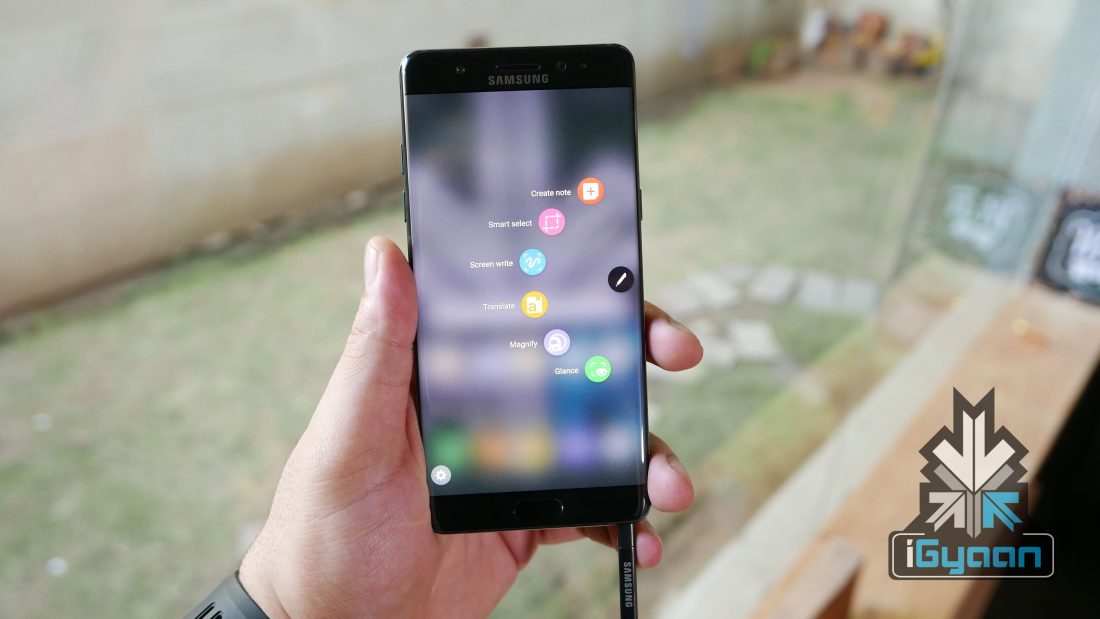
Galaxy Note 7
As is with all Samsung flagship devices, the Galaxy Note8 will ship with two different chipsets, the Qualcomm Snapdragon 835, 2.45 GHz octa-core processor with Adreno 540 GPU for USA and China, and the Exynos 8895, 2.3GHz Quad-Core (Custom CPU) + 1.7GHz Quad-Core (Cortex-A53) with Mali-G71 MP20 for the remaining markets. The device will have 6GB RAM and onboard storage options of 64GB/128Gb/256GB which will be expandable via microSD card up to 256GB.
Powered by a 3,300 mAh battery with QuickCharge 2.0 via USB Type C port and the rear glass panel allows the Galaxy Note 8 to support wireless charging. Thanks to Galaxy Note 7’s 3500mAh faulty batteries, Samsung has opted for a slightly smaller battery for its new flagship.
For added security, Samsung is offering plenty of biometric security options to choose from, such as iris scanner and facial recognition, apart from a fingerprint scanner. The Galaxy Note 7 was amongst the first of Samsung smartphone to feature iris scanner for unlocking the device.
The smartphone will be available in four colour variants (two of which were leaked ahead of its launch)– Midnight Black, Orchid Gray, Deep Sea Blue and Maple Gold.
In term’s of how the Galaxy Note 8 will stack up against it’s recalled sibling, the Galaxy Note 7, here’s a little something to help you figure out.
| Specifications | Galaxy Note 8 | Galaxy Note 7 |
| Price | £869 (Approximately Rs. 71,100) | Launched at US $ 849.99 (Approximately Rs. 59900) |
| Dimensions | 162.5 x 74.8 x 8.6mm | 153.5 x 73.9 x 7.9 mm |
| Weight | 195 grams | 169 g |
| Design | Corning Gorilla Glass 5 Front Corning Gorilla Glass 5 Back Metal Frame |
Corning Gorilla Glass 5 Front Corning Gorilla Glass 5 Back Metal Frame |
| Colors | Midnight Black Orchid Gray Deep Sea Blue Maple Gold |
Blue Coral Gold Platinum Silver Titanium Black Onyx |
| Display | 6.3-inch Super AMOLED | 5.7-inch Super AMOLED |
| Screen Resolution | 2960 x 1440 px | 2560 x 1440 px |
| PPI (Pixels Per Inch) | 521ppi | 518ppi |
| Display Protection | Corning Gorilla Glass 5 | Corning Gorilla Glass 5 |
| Chipset | Option 1: Qualcomm Snapdragon 835
Option 2: Exynos 8895 |
Option 1: Qualcomm Snapdragon 829
Option 2: Exynos 8895 |
| CPU | Snapdragon 835 Variant: Octa-core 2.45 GHz
Exynos Variant: 4×2.3 GHz custom CPU and 4×1.7 GHz Cortex-A53 |
Snapdragon 820 Variant: Quad-core (2×2.15 GHz Kryo & 2×1.6 GHz Kryo)
Exynos Variant: Quad-core (2×2.15 GHz Kryo & 2×1.6 GHz Kryo) |
| GPU | Snapdragon 835 Variant: Adreno 540
Exynos Variant: Mali-G71 MP20 |
Snapdragon 820 Variant: Adreno 530
Exynos Variant: Mali-T880 MP12 |
| Storage | 64GB/128GB/256GB | 64GB |
| Expandability | microSD card up to 256GB | microSD card up to 256 GB |
| RAM | 6Gb | 4GB |
| Operating System | Android Nougat 7.1.2 | Android 6.0 marshmallow |
| Primary Camera | Dual 12MP cameras
12MP primary camera with wide-angle lens with an f/1.7 aperture 12MP secondary camera with telephoto lens with an f/2.4 aperture |
12MP with f/1.7 |
| Primary Camera features | 2X Lossless zoom
Dual Capture Dual optical image stabilisation Bokeh Effect |
1/2.5″ sensor size, 1.4 µm pixel size, simultaneous 4K video and 9MP image recording |
| Secondary Camera | 8MP with an f/1.7 | 5MP with f/1.7, 22mm |
| Primary Camera Video Recording | 4K (3840 x 2160) at 30fps | 4K (3840 x 2160) at 30fps |
| Secondary Camera Video Recording | 4K (3840 x 2160) at 30fps | 1920×1080 at 30fps |
| Battery | 3300mAh | 3500mAh |
| Other Features | USB v3.1, Type-C 1.0 reversible connector Iris Scanner Fingerprint Scanner IP68 certified – dust proof and water resistant S- Pen Stylus |
USB v3.1, Type-C 1.0 reversible connector Iris Scanner Fingerprint Scanner IP68 certified – dust proof and water resistant S- Pen Stylus |
















